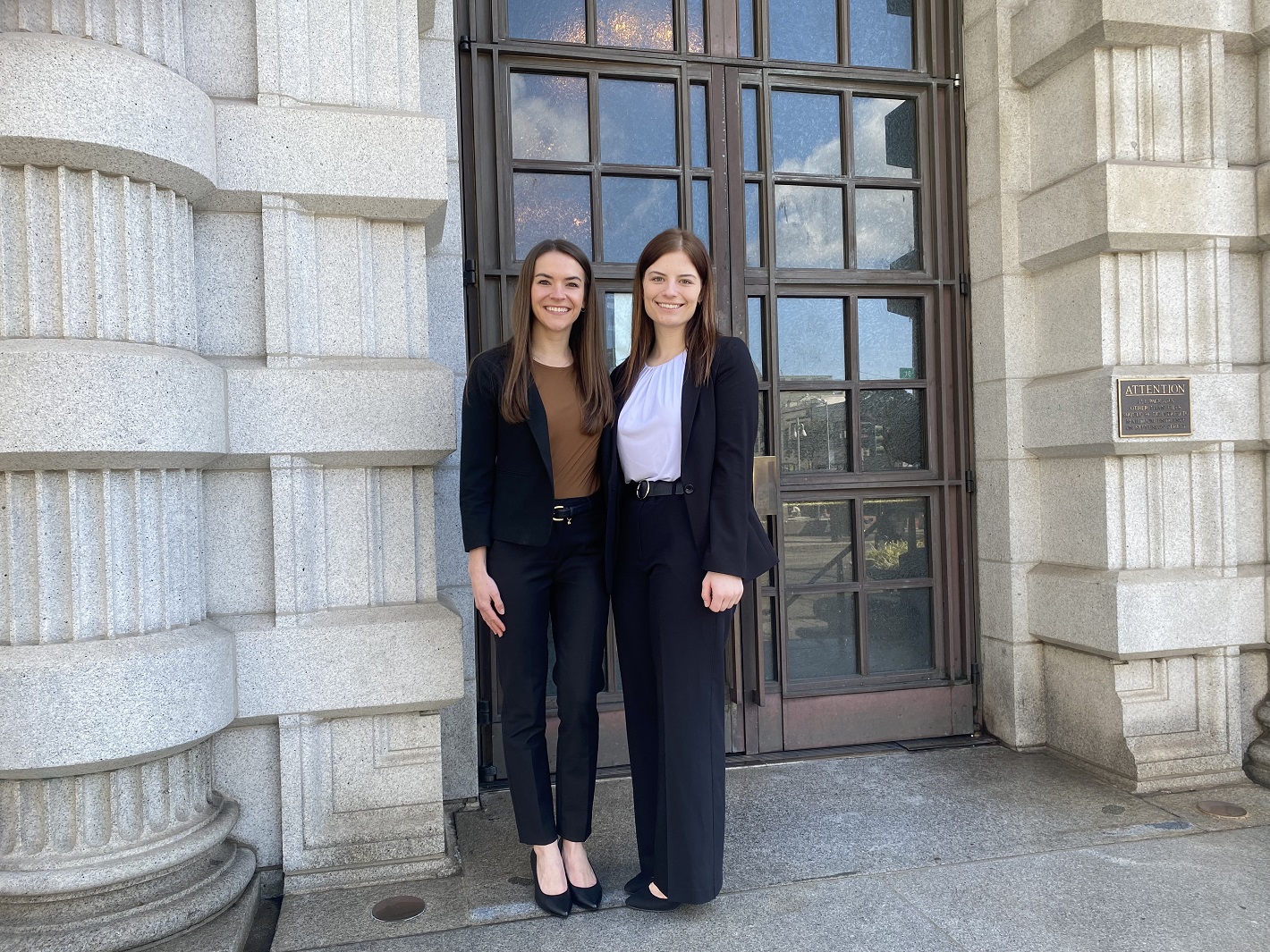Third-year students in the University of St. Thomas School of Law Appellate Clinic argued a constitutional case involving a prisoner’s “good time” or good behavior credits earned toward parole before the U.S. Court of Appeals for the 9th Circuit in San Francisco, California, on April 18.
The case, Keshone Owens v. James Dzurenda, et al., was argued by students Jessica Berns and Kelly Carlson, who worked on behalf of the school’s Appellate Clinic led by Professor Gregory Sisk. The appellate team began working on the case in summer 2022, drafting a written brief and then preparing for oral argument.
Keshone Owens, who is incarcerated in Nevada, discovered that prison officials were failing to credit the good time days he had received against his minimum sentence. Although the Nevada Supreme Court in another case ruled that the prison was violating the good time law, the Nevada prison refused to return the good time credits that Owens had lost and has failed even today to grant the full credits earned.
Owens, acting pro se, brought claims in the U.S. District Court in Nevada alleging that the prison was denying him full good credits by retroactively applying another statute that had been enacted by the legislature after the crimes for which he had been convicted. To apply a subsequent statute backwards is a violation of the Ex Post Facto Clause of the U.S. Constitution. The trial court agreed with Owens that further investigation through discovery was appropriate.
After the prison official defendants took an immediate appeal, St. Thomas’ Appellate Clinic contended that the Court of Appeals lacked appellate jurisdiction because the appeal was both late in not being timely filed and premature before the District Court had decided key issues conclusively. The students and Sisk also contended that the prison officials were raising factual disputes on appeal, which is outside of interlocutory appellate jurisdiction. On the merits, they contended that Nevada Supreme Court decisions clearly establish that retroactively taking away a prisoner’s good time credits is an Ex Post Facto violation.
At the oral argument, the three judges asked Berns and Carlson numerous questions about jurisdiction, about the factual disputes in the record and about Mr. Owens’ good time credit allegations. At the close of the argument, the presiding judge said these two students “would always be welcome back as attorneys in my courtroom” because they had “presented themselves very professionally and were well prepared.”
The Appellate Clinic is a yearlong course of study in written and oral advocacy, appellate courts, appellate jurisdiction, and the rules of appellate procedure. Clinical students represent a prisoner client pro bono under faculty supervision, briefing and arguing appellate cases on their behalf. The Appellate Clinic is led by Professor Gregory Sisk, Laghi Distinguished Chair in Law. This is the 11th year of pro bono work by the Appellate Clinic, which has established a record of prevailing in 70% of the appeals it has taken.







